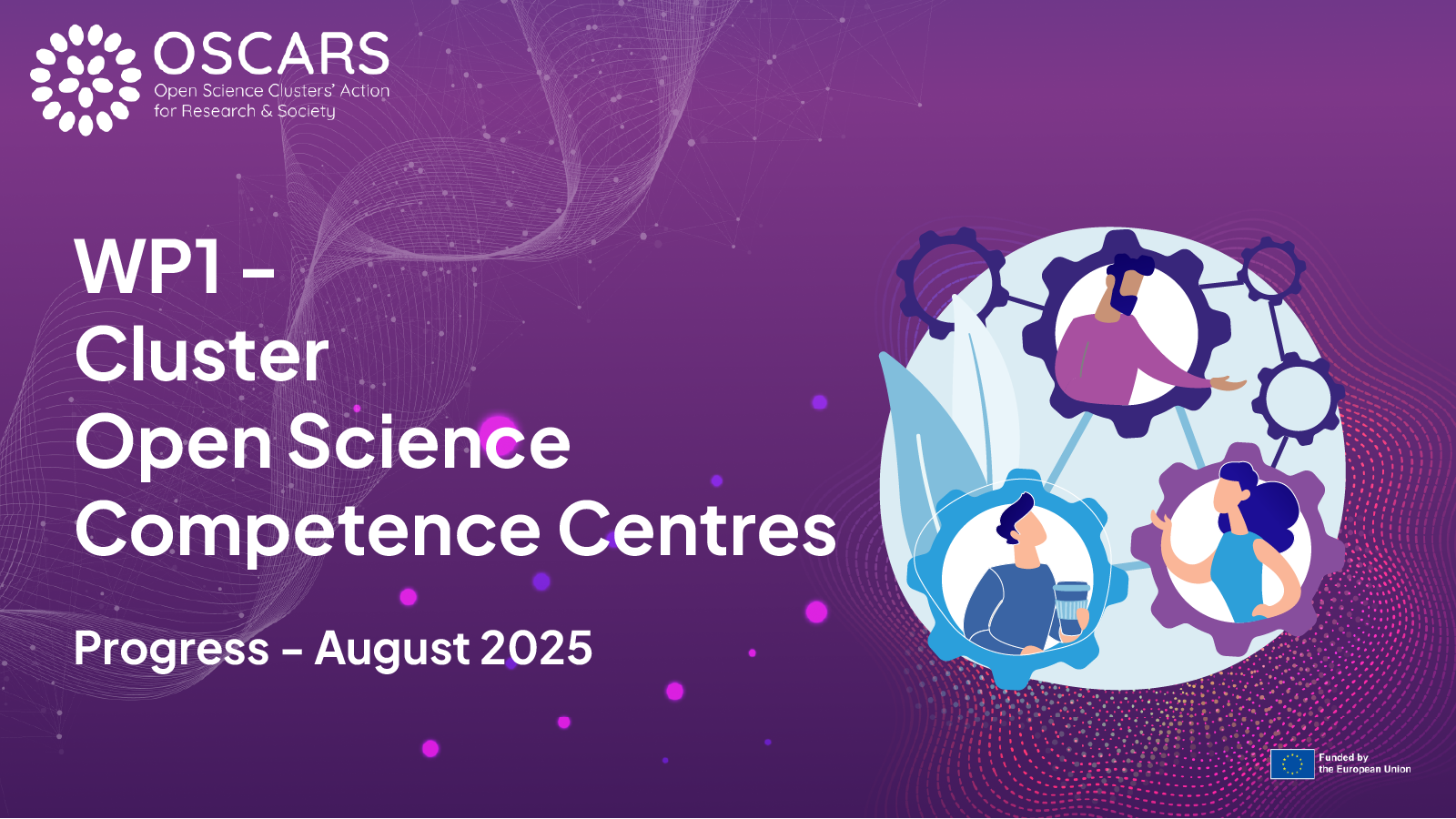
Since the start of OSCARS, Work Package 1 (WP1) – Cluster Open Science Competence Centres (CLOCC), has played a pivotal role in establishing Community-based Competence Centres (CCCs), cluster-specific virtual hubs dedicated to fostering research excellence through training and knowledge transfer. CCCs are community-based initiatives supported by networks that are rooted in thematic or discipline-specific collaboration. The envisaged CCCs will focus on providing expertise, best practices and services in relation to Open Science, and the promotion of cross-disciplinary collaboration.
In the frame of the WP, a roadmap has been developed, setting out a plan for each of the CCCs for co-located and/or cross-cluster training events and workshops. The goal is to put resources (such as, among others, practical training) at the disposal of the scientific community, aimed at equipping researchers and research infrastructures (RIs) with the essential tools and knowledge to embed FAIR data and Open Science practices into everyday research workflows.
EOSC-related semantic artefacts, such as glossaries, vocabularies, and thesauri, are vital for making RI services and research data discoverable and interoperable across disciplines, and thereby increase the potential for reuse of resources and reproducibility of results.
In fact, discoverability and interoperability of terminology would be an important step forward for the thematic infrastructural initiatives in the EOSC landscape. The goal is to foster clearer communication among researchers, RIs, service providers, and policymakers, facilitating collaboration and reducing barriers linked to terminology differences.
The WP has established a task force (TF) that works towards an overview of relevant glossary/vocabulary initiatives to avoid duplication of work, to help newcomers in the EOSC-landscape and to identify opportunities for glossary harmonisation, format standardisation (e.g., by using SKOS) and optimised interoperability.
WP1 has also actively contributed to best-practices exchange events and EOSC task force meetings, strengthening cross-cluster coordination and sharing lessons learnt to foster continuous improvement. Additionally, a thorough landscaping exercise was conducted, surveying community needs and identifying gaps related to Open Science implementation, thereby informing WP1’s strategies to ensure relevance and impact.
Together, these efforts have laid the foundation for sustained Open Science adoption across Europe’s research landscape, driving harmonised and scalable practices within and across the Science Clusters.